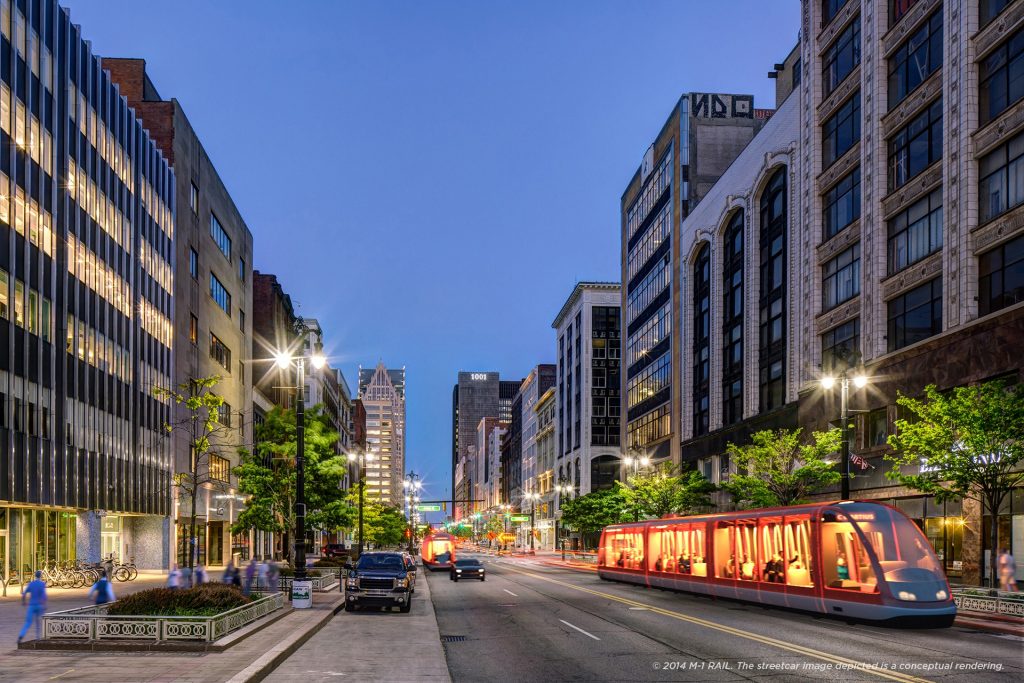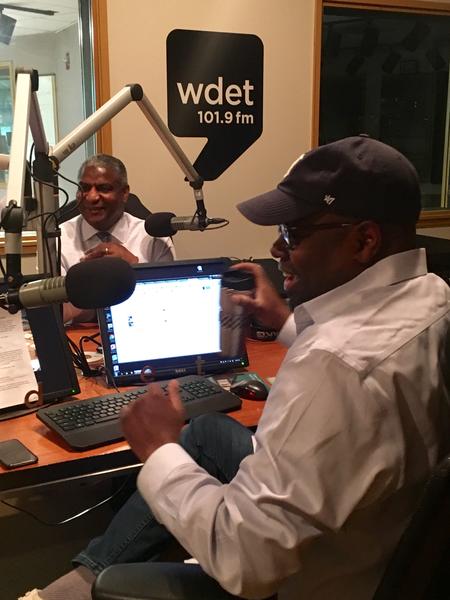Is Metro Detroit On The Verge Of A Transit Boom?
Former U.S. Transportation Secretary Rodney Slater talks about the upcoming RTA vote.


Southeast Michigan voters and public officials are going to have to make some big decisions soon regarding public transit. The Regional Transit Authority of Southeast Michigan (RTA) plans to ask voters to raise their taxes to fund transportation projects and create a coherent system across the region. The RTA is expected to release its plan in the next couple weeks. But it’s already calling for projects like commuter rail linking Detroit and Ann Arbor.
Is now the time to make major investments to improve transit options and create more access to public transportation? Who should pay for it? And is it even possible to create a first-rate system in a region that has been shaped by cars for decades?
Detroit Today host Stephen Henderson speaks with three RTA supporters — including Rodney Slater, former U.S. secretary of transportation under Bill Clinton.
“Detroit is really the only city in the country of major size that does not have a regional transit system,” says Slater, who says he has taken special interest in Southeast Michigan, in part because he attended Eastern Michigan University as an undergraduate.
Henderson also speaks with Zach Schafer, CEO of Infrastructure Week, which runs from May 16th through May 23rd.
“I think that the opportunity for RTA and for systems like it is that it really solves so many of the problems that we’re seeing at a more systemic level that aren’t always connected to infrastructure challenges. But we’re talking about jobs and economic competitiveness, we’re talking about health and safety, we’re talking about building stronger communities,” says Schafer.
Laura Trudeau, senior advisor to the Kresge Foundation says the history of public transit in Metro Detroit has created a number of challenges in terms of how to best move forward. She says one of the goals of the M-1 Rail project connecting Downtown, Midtown, and New Center in Detroit is to get people to think differently about public transit.
“The theme that exists in both M1 Rail and in regional transit is to connect people to jobs, to create communities that are more socially cohesive, that have more active life in neighborhoods, and that allow people to have mobility where it didn’t exist before — choices other than just a car,” says Trudeau, who also serves as an executive-on-loan to the coalition supporting the RTA and to M-1 Rail.
To hear the full conversation, click on the audio link above.
